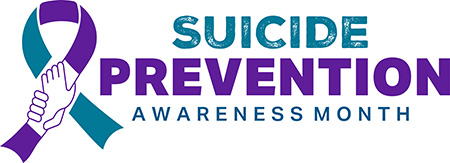
September is National Suicide Prevention Month, a time to raise awareness, foster hope, and spark meaningful conversation around what continues to be an urgent mental health issue in the United States.
More than 49,000 people died by suicide in the U.S. in 2023 – equating to one death every 11 minutes, according to the Centers for Disease Control and Prevention.
Moreover, an estimated 300 to 400 physicians die by suicide each year, according to the American Foundation for Suicide Prevention (AFSP). That statistic equates to roughly one doctor dying every day and is a rate nearly double that of the general population.
"We need to remain vigilant and notice when family, friends, or colleagues begin acting differently,” said Eric Achtyes, MD, MS, DFAPA, chair of the Department of Psychiatry at WMed. “If we can be the one to intervene for an individual we will spare them, along with their family and friends, from experiencing an irreversible, life-shattering tragedy.”
Here are a few actions you can take to promote suicide prevention:
Learn more about suicide
Suicide has no single cause, but “most often occurs when stressors and health issues converge to create an experience of hopelessness and despair,” according to the AFSP.
Conditions like depression, anxiety, and substance problems, especially when unaddressed, increase the risk for suicide.
Know the warning signs of suicide
Talking or thinking about suicide, feelings of hopelessness or helplessness, self-loathing, withdrawing from others, getting affairs in order, and a sudden sense of calm are some of the warning signs of suicide. Learn more about how to spot warning signs.
Start a Conversation
If you are worried about someone, do not hesitate to ask if they have been thinking about suicide. Be there to listen and offer support.
“With one conversation, asking someone how they’re really doing — and being ready to truly listen — can save lives,” the National Alliance on Mental Illness (NAMI) said on its website. “No one has to face this alone. Help exists. Healing is possible. And all it can take is for one person to start a conversation.”
Remember 988 is available
If you or someone you know is in distress, you can seek immediate support by texting or calling 988. The 988 Suicide & Crisis Lifeline, also known as the National Suicide Prevention Lifeline, provides free, 24/7 confidential support and resources for those in need. Additionally, the WMed Critical Incident Stress Management Team has a variety of resources available for our faculty, residents, students, and staff on the WMed Portal.
